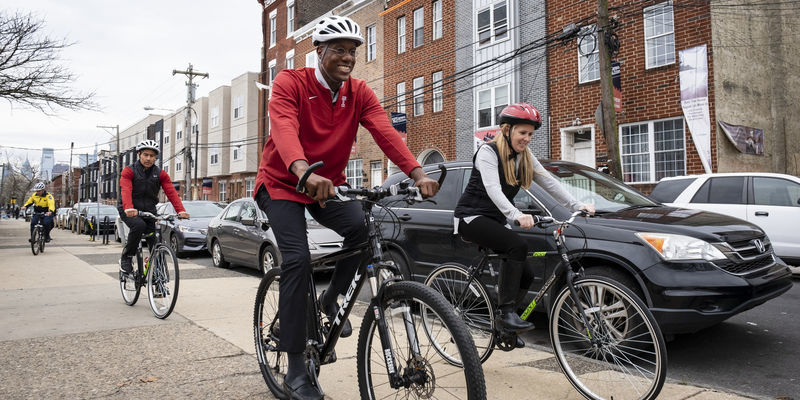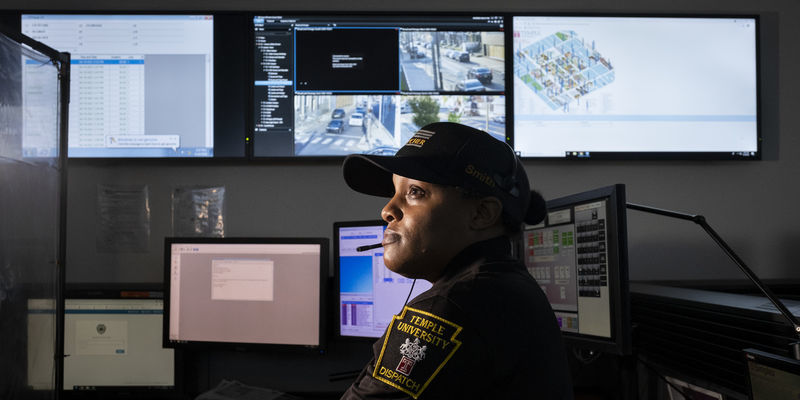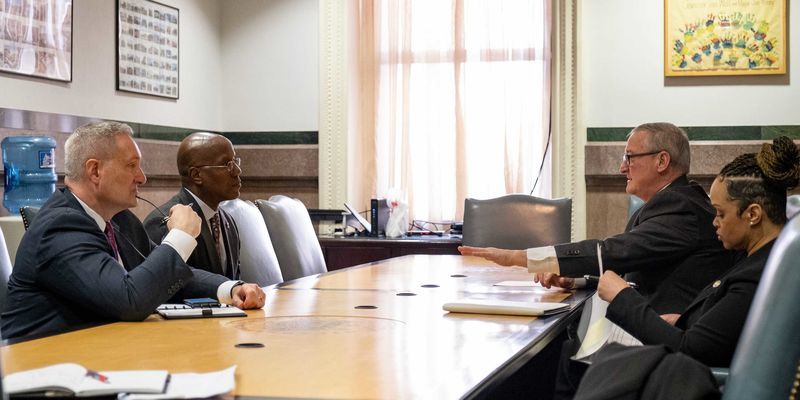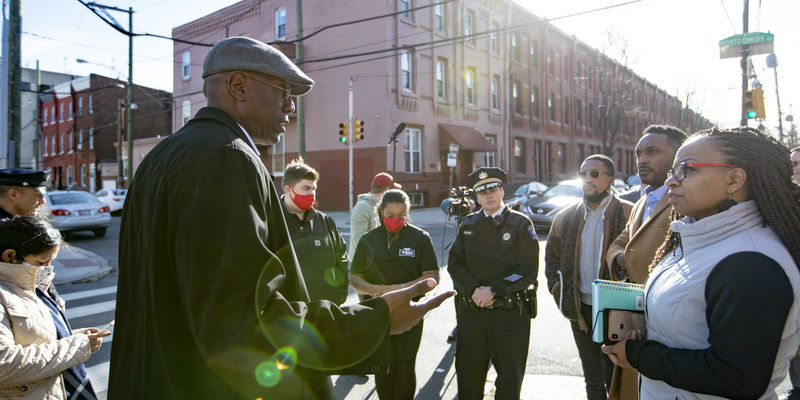Temple joins parents for discussions on campus safety enhancements
In a roundtable discussion, Temple leadership detailed major campus safety developments and heard from parents regarding questions and concerns.
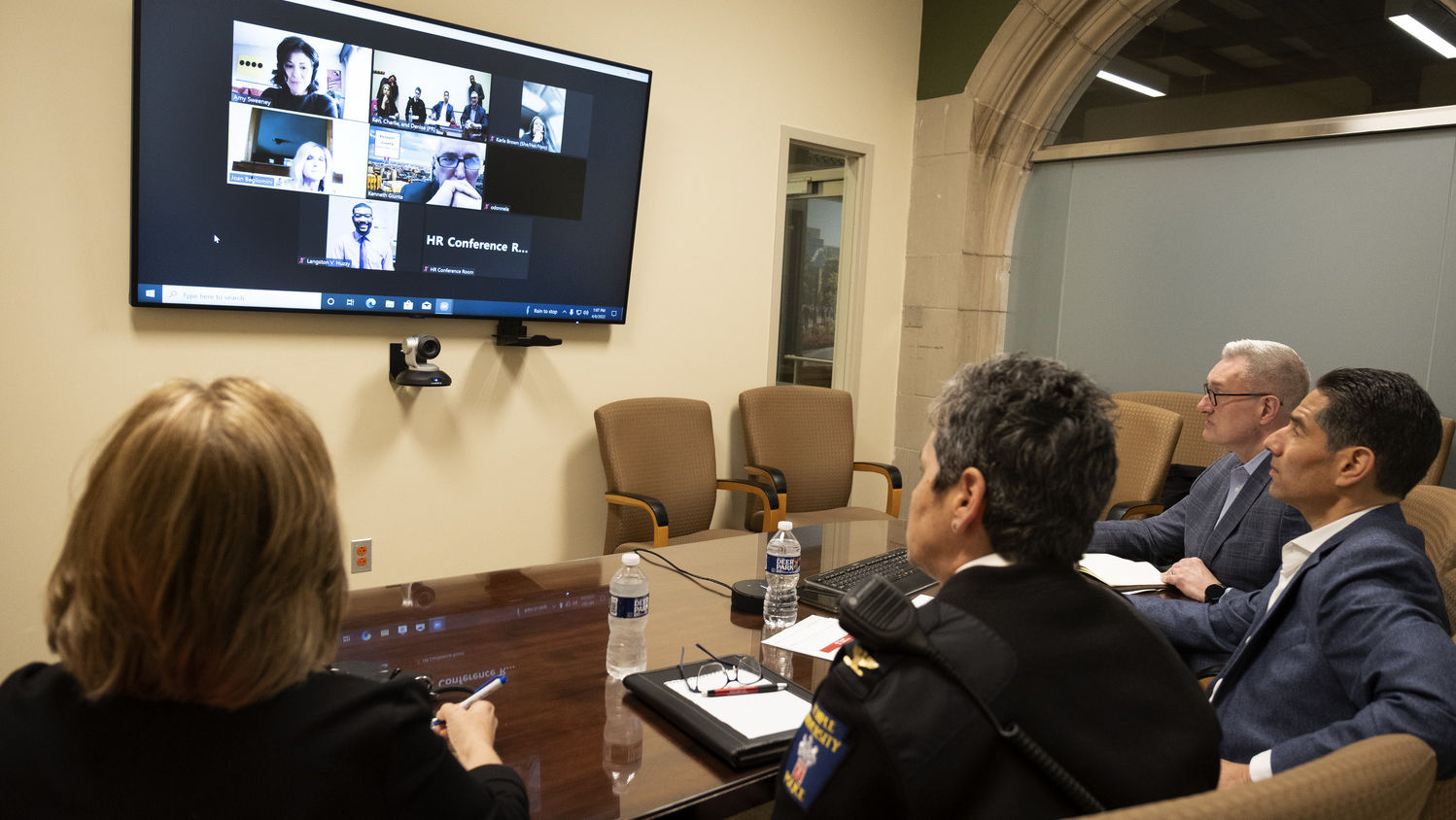
On April 6 and April 19, Temple University’s leadership met with parents of current Temple students to discuss the university’s safety enhancements both on and off campus. Attendees joined the Sullivan Hall meeting both in-person and via Zoom.
Together, the two meetings provided a forum for parents to hear directly from Ken Kaiser, senior vice president and chief operating officer, Charles Leone, former executive director of public safety, and Denise Wilhelm, interim executive director for Campus Safety Services, about the recent steps Temple has taken to boost campus safety. And in turn, it gave parents the opportunity to share their concerns, voice feedback and ask questions of university leaders.
“We wanted to hear from the parents to address their concerns, make sure they had accurate information, answer their questions, listen to their ideas and really stress that we are partners in making Temple as safe as possible for their children, who are our students, and for everyone else in the Temple community as well,'' said Kaiser.
“Even though Temple’s overall budget the last two years has been reduced by $74 million, our campus safety budget has gone up because we know the importance of safety and we constantly invest in it,” explained Kaiser. “For example, we have engaged former Philadelphia Police Commissioner Charles Ramsey to conduct a review of our procedures and make recommendations which are ongoing,” he added.
Kaiser outlined other examples of Temple’s investment in campus safety, starting with the increase in the number of Temple police officers on staff and a corresponding increase in patrols. He said that the Philadelphia police officers have tripled their supplemental patrols from a baseline of 96 hours a week to 288 hours a week.
“It is important to continue with our hiring process and deployment, working with the Philadelphia police and our officers to ensure we are in the areas that we need to be to reduce risks,” said Leone. “We are looking at our campus infrastructure, and how we can replicate some of that in the neighboring community with our community members.”
“We strategize the deployment of our officers by looking at crime patterns,” added Wilhelm. “We are frequently rotating the officers that we hire and placing them in specific areas we want them to concentrate on.”
Because the use of lighting and cameras is a proven deterrent to crime, reinforcing and strengthening these resources and technologies around campus has been one of the university’s top priorities. Temple now has more than 1,000 cameras on and around campus that are monitored 24/7.
On Feb. 14, the university launched RAVE Temple Guardian, a new one-touch personal safety mobile app that allows students, faculty and staff to connect directly with Temple Police, enabling virtual or physical escorts and helping users report any suspicious activity. The university is also in discussions with a qualified organization to lead a neighborhood watch program for the areas around campus.
A map on Temple’s Campus Safety Services website that shows the university’s patrol boundary, including every street, every numbered street, every small street. Students and parents can consult the map when searching for off-campus residences. To improve the environment for students living off-campus. Temple created the Temple Area Property Association, an organization encouraging responsible development and property management among landlords. As well, in April, the university announced a security upgrade grant program, intended to help landlords by funding the installation of lighting or cameras on private residences near campus.
“I think that the landlord program with the funding of $2,500 is going to help increase lighting in the areas that need it. It is a known fact that lighting does reduce crime and risk,” said Leone.
Kaiser said that Temple is looking to spot check landlords and create an online rating system of off-campus landlords for students and parents to review when searching for off-campus housing.
In early April during Temple President Jason Wingard’s bike tour around the North Philadelphia community, residents voiced that one of the biggest safety concerns is excess trash.
“To combat trash dumping, ongoing cleanups are organized through the Temple Student Government and students are provided information on how they can be good neighbors,” said Leone. “And then we work with the block captains and the students prior to the fall semester.”
“Also, as part of the North Philadelphia Special Services District, a group called One Day at a Time collects trash on a weekly basis and a company run by military veterans called JDog [Junk Removal & Hauling] picks up trash and bulk items,” he added.
One of the parents at the meeting noted the importance of working with youth at local schools in the community to stop the next generation of young kids from committing acts of violence and crime. In alignment with that thinking, Temple Police lead Great Resistance Education and Training programs at neighborhood schools for youth in Kindergarten through 8th grade, and offer other programming with high school students.
Parents in attendance from the Temple Family Council said they have put together a proposal for a Public Service Announcement in the form of a video to help educate and train current students, and incoming students during first-year orientation on what they can do to put themselves in a better place to be safe at Temple.
“Educating our students is a key factor in helping reduce risk,” said Leone.
Parent roundtables will continue to be held moving forward, with the next one scheduled for May 23.
